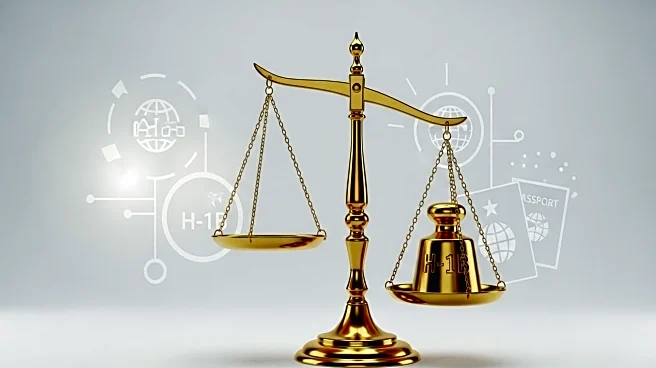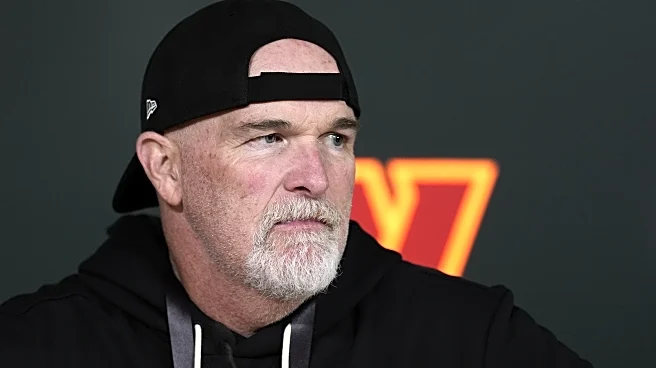What's Happening?
President Trump has signed an executive order imposing a $100,000 annual fee on H-1B visa applications. This move is part of the administration's efforts to limit the number of foreign workers entering the U.S. for job opportunities, particularly in the tech sector. The fee applies to all H-1B visa holders, including those seeking renewals. The administration views the current H-1B program as a means for companies to exploit lower-wage employees, impacting U.S. salaries. The White House is also concerned about U.S. students avoiding STEM fields due to foreign competition.
Why It's Important?
The new fee structure could significantly impact the U.S. tech industry, which relies on H-1B visas to bring in skilled foreign workers. The increased cost may lead companies to reconsider their hiring strategies, potentially affecting their ability to innovate and compete globally. The administration's focus on prioritizing American workers may resonate with some domestic audiences but could also lead to a talent shortage in critical sectors. The policy may also influence the educational choices of U.S. students, potentially encouraging more to pursue STEM fields.
What's Next?
The tech industry is likely to oppose the new fees, arguing that they could hinder their ability to attract top talent. There may be legal challenges or lobbying efforts to reverse or modify the policy. Companies may also explore alternative strategies to fill talent gaps, such as investing in domestic training programs or seeking talent in countries with more favorable immigration policies. The administration's actions could prompt broader discussions on the future of U.S. immigration policy and its impact on the economy.










